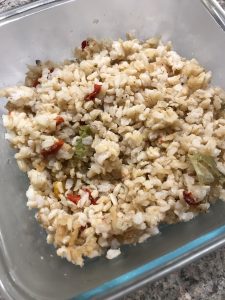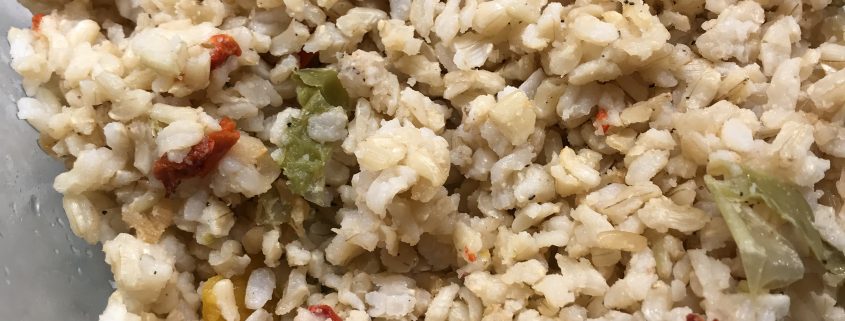National Whole Grains Month
 Did you know that September is National Whole Grains Month? Yes, there is an entire month dedicated to whole grains! The best part about whole grains is that there is such a variety to choose from; you can have a different type every night of the week! The USDA recommends that at least half of all the grains you eat should be whole grains. A grain product is any food made from wheat, barley, rice, oats, cornmeal, or another cereal grain.
Did you know that September is National Whole Grains Month? Yes, there is an entire month dedicated to whole grains! The best part about whole grains is that there is such a variety to choose from; you can have a different type every night of the week! The USDA recommends that at least half of all the grains you eat should be whole grains. A grain product is any food made from wheat, barley, rice, oats, cornmeal, or another cereal grain.
With National Whole Grain Month in full swing, now is the perfect time to learn more about them and how to incorporate them into your daily meals!
Whole Grains vs. Refined Grains
Why are whole grains so much better than processed or refined grains? Well, whole grains are just what they sound like- “whole grains,” which means that the entire grain- the bran, germ, and endosperm- is in the product, unlike with refined grains. Refined grains go through a “refining” process, which removes the bran and germ. When this occurs, the shelf life improves, but dietary fiber, iron, protein, and B vitamins are lost.
A refined grain can be “enriched”, which means that certain B vitamins are added back after processing. However, overall it is still not equal in nutritional value to whole grains.
Whole Grain Benefits
Due to whole grains having the entire grain included – bran, germ and endosperm, in the product, they provide you with many health benefits.
- Reduces risk of heart disease: Whole grains are rich in fiber. Fiber helps to reduce the amount of “bad” cholesterol in your blood, thus reducing your overall cholesterol levels and making your diet more heart healthy.
- Aids in satiety: The fiber in the whole grains helps you stay fuller for longer as they take longer to digest. Thus, you’ll find that you get fuller faster and don’t get hungry as quickly.
- Decreases risk of certain cancers: The American Institute of Cancer Research states that whole grains provide vitamins, phytochemicals and other cancer-protective compounds, which can aide in decreasing your risk of certain cancers. Whole grains may also reduce risk by reducing chronic inflammation.
- Lowers your risk of diabetes: Whole grains help keep your blood glucose (sugar) levels from spiking due to the fiber content. Eating whole grains has a protective effect against type 2 diabetes.
- Helps digestion:The fiber content of whole grains helps keep your bowel movements regular. Whole grains also contain lactic acid, which promotes good bacteria in the large intestine!
Whole Grain Products
Now that you know all the benefits of whole grains, you may be asking yourself what products are considered whole grain?
Besides the typical whole grain breads and pastas that you see in the supermarket, there are many more options available that you can try! Here’s a few that I encourage you to experiment with this month!
- Brown Rice
- Barley
- Buckwheat
- Quinoa
- Millet
- Rye
- Oats
- Wheat berries
If you’re looking for whole grain recipes, head over to my Free Healthy Recipessection for some ideas!
Your Turn to Take Action: How will you incorporate more whole grains into your day? Let me know in the comments below!


Leave a Reply
Want to join the discussion?Feel free to contribute!